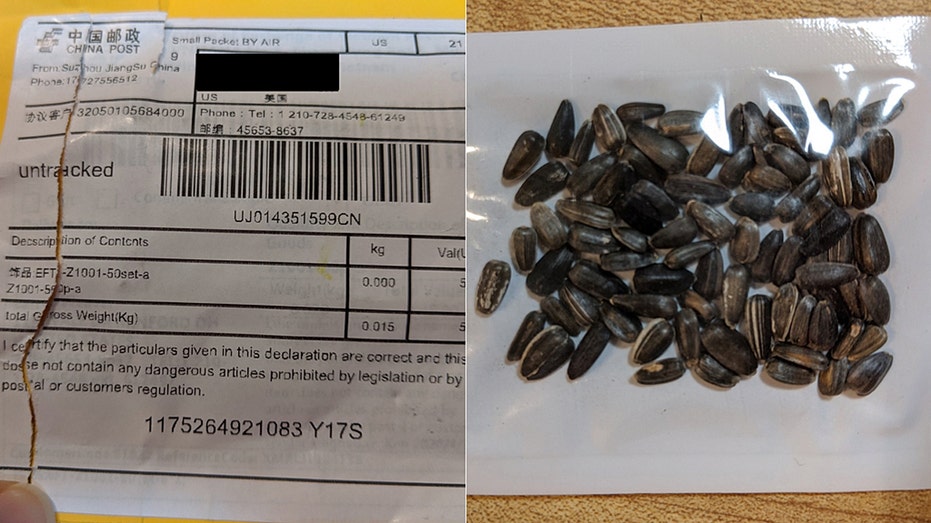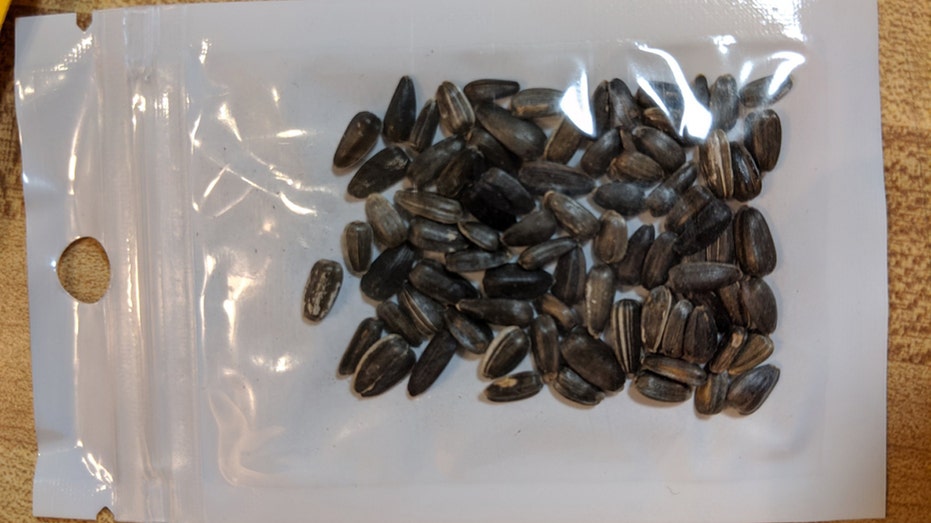Americans receive mystery seeds in the mail, mostly from China
Agricultural officials investigate after U.S. residents get unsolicited packages, warn people not to plant them
State officials and the U.S. Department of Agriculture are investigating reports that hundreds of residents have received seeds in the mail they didn't order.
Agricultural officials across the U.S. have launched probes after residents received unsolicited packages of seeds that appear to have mostly originated from China. Mike Strain, Louisiana's commissioner of agriculture and forestry, which is investigating packages received in that state, said the USDA is also investigating the matter.
A USDA spokesperson said the agency's Animal and Plant Health Inspection Service is aware that "people across the country have received unsolicited packages of seed from China in recent days." The spokesperson said USDA is working with the U.S. Department of Homeland Security's Customs and Border Protection and state agriculture departments to prevent the illegal entry of prohibited seeds and protect U.S. agriculture from invasive pests and noxious weeds.

(Ohio Dept of Agriculture)
Mr. Strain said packages sent to Louisiana residents appear to be from China and Uzbekistan, and that some were labeled to suggest they contained jewelry, toys or wireless earbuds.
The Chinese Embassy and Embassy of Uzbekistan in Washington, D.C., didn't immediately comment.
Other departments of agriculture in states from Virginia to Washington are investigating similar packages, or have asked residents to report any unsolicited seeds they received in the mail. They are urging people not to plant the seeds. The National Association of State Departments of Agriculture says it is working closely with USDA and DHS to understand the origin of the seeds.
US FARMERS SCRAMBLE FOR HELP AS COVID-19 SCUTTLES IMMIGRANT WORKFORCE
Officials are trying to identify the seeds, which they worry could be invasive plant species, and threatening to native plants and crops, or could introduce diseases or be harmful to livestock.
"I don't think anyone has determined what's really going on here," said Mr. Strain. "If they are invasive or contain plant pests or disease, from an agricultural point of view, that is our greatest concern."
Mr. Strain said his department learned Friday that a resident had received unsolicited seeds in the mail. Since releasing the information publicly that same day, the department has received phone calls from more than 150 people in Louisiana and other states, from California to Massachusetts, who received similar packages.

(Ohio Dept of Agriculture)
Field agents have begun collecting seeds from residents across the state. The initial seeds, brought to a lab in Baton Rouge, appear to be Chinese water lily seeds, Mr. Strain said. Other packages contained other types of seeds, which officials have yet to identify.
Some state agriculture departments said the seed shipments amount to the illegal practice of agricultural smuggling because they were intentionally mislabeled to bypass U.S. customs. Importing seeds typically involves a rigorous process that requires seeds come from a certified source and be approved by federal authorities, the departments said. Some seed recipients told officials they had already planted them.
Michael Wallace, a spokesman for the Virginia Department of Agriculture and Consumer services, said it has received communications from more than 1,000 people in Virginia and 12 other states who received similar packages over the course of the past month.
Mr. Wallace said Virginia's investigation was in its early stages, but that the seeds could be an example of "brushing," in which companies send unsolicited goods to individuals and then post fake, positive reviews of the items on the recipient's behalf.
In a related Facebook post, an Ohio police department said brushing is a scam used by vendors to boost product ratings and increase online visibility. The department asked Ohio residents who received seeds in the mail to contact the police.
GET FOX BUSINESS ON THE GO BY CLICKING HERE
Washington's Department of Agriculture believes some of the packages sent to its residents contained citrus seeds, which could transmit disease. In addition to being invasive, officials are concerned shipped seeds could be toxic to livestock or wild animals, said Karla Salp, a department spokesperson.
"We don't need another kudzu type thing to deal with," she said, referring to an invasive plant that kills or harms other plants by blanketing them with leaves, breaking branches or uprooting trees and shrubs.
Seeds sent to Utah residents so far don't appear to be invasive, said Logan Wilde, commissioner of the state's Department of Agriculture and Food, though further genetic testing will be done, and some seeds are also being tested for chemicals that may have been sprayed on them. The department has identified some seeds as daffodil or grass seeds, including Timothy grass and Kentucky bluegrass.
Mr. Wilde said some seeds were sent to residents who placed online orders for jewelry-making materials. "It's got to be fairly expensive to do," he said.
Jacob Bunge contributed to this article.




















